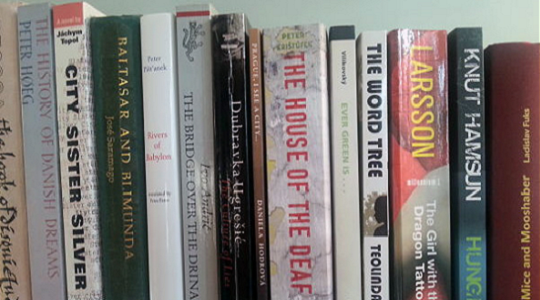Smaller European literatures don’t necessarily come from geographically or numerically small nations, but they are generally clustered in what for, say, English, French, or German readers, are European peripheries like the Balkans, the Baltic, Central and Eastern Europe, the Low Countries, the Mediterranean and Scandinavia. They are written in less widely spoken languages, come from less familiar traditions and depend on translation to reach an international audience. A project called ‘Translating the Literatures of Small European Nations’, funded by the Arts and Humanities Research Council, aimed to understand both the challenges and opportunities that exist for these literatures as they try to break into the cultural mainstream in the UK, and in June 2017 we finally published a report on our findings.
Our project brought together four academics from the UK who promote very different smaller literatures―not only through their teaching and research, but also through various kinds of public engagement and publisher collaboration: I work on Czech and Slovak at Bristol, Rhian Atkin on Portuguese at Cardiff, Jakob Stougaard-Nielsen on Scandinavian and Zoran Milutinović on South Slav at UCL. We sensed that we work quite similarly, in parallel or even in competition, without much opportunity to discuss how our smaller literatures perceive and promote themselves internationally and how they are received by readers. We suspected that this parallel, competitive experience applied more generally to other professional advocates of smaller European literatures, whether translators, publishers, literary agents or state and third-sector promoters.

